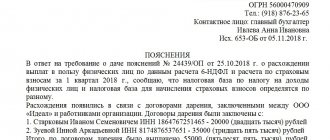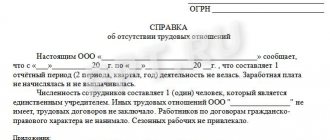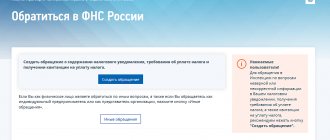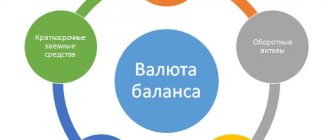Labor inspections can be either scheduled or unscheduled. In this material we will tell you what documents need to be prepared for verification and what to pay attention to the HR officer and payroll accountant.
First of all, it is worth noting that the rules for conducting labor inspections are regulated. They were approved by order of Rostrud dated June 13, 2019 No. 160.
Types of checks
There are inspections: scheduled and unscheduled. You can learn about scheduled inspections before the start of the year on the website of the Prosecutor General’s Office. To prepare for such a check, Rostrud has made checklists that can be filled out online. That is, you take a test and at the end they give you something like a verification report. There will be warnings and tips on what is important to fix before checking. The wording in the tests is not the simplest, but the idea of this tool itself is good and can be useful.
The good news is that small businesses are exempt from inspections until the end of 2021. True, there are exceptions here - small businesses in the field of education, healthcare, social sphere and with licensed types of activities can still be checked.
But no one is immune from unscheduled inspections; I’ll tell you about their reasons below.
Scheduled and unscheduled inspections are on-site and documentary:
Documentary is when you are asked to send certified copies of documents to eliminate suspicions of violations that inspectors now have. For example, they see that you pay a very small salary and ask you to explain. And you say that your salary is this way because your employees work part-time and send certified copies of employment contracts as confirmation.
On-site inspections are when inspectors come to your office, store or salon personally and unexpectedly. They will also look at documents, and for any period, but only on the topic of verification. Read it in advance in the inspection order. For example, if the topic of the audit is the calculation and payment of wages, then inspectors do not have the right to check issues related to the personal data of employees. And an order that does not indicate the subject of inspection at all is illegal.
What a view!
Having title documents is only half the success; all of them must be properly completed. Standard orders and documents are made in the prescribed form. Remember that all applications are written by hand by the employee himself, and that his autograph is required on the relevant orders. It will be better if the magazines are in hard cover, with glue binding, laced, numbered on each page, at the end - information about the total number of pages, signature, and seal.
To simplify paperwork and save time - both yours and the labor inspector's, you can make lists of certain categories of workers requiring a “special approach”. These include minors, disabled people, expectant mothers, employees with children under three years of age, single parents employed in hazardous (hazardous) jobs.
Reasons for inspections
The most common complaint is from your own employees. More calls can come from the prosecutor's office, police, tax office, foundations, and even from job sites. For example, when one of the conditions of employment is Moscow registration.
According to the labor inspectorate portal, more than half of the complaints relate specifically to wages. That is, workers are ready to tolerate violations of their labor rights and make compromises with the employer as long as money is not involved.
However, the labor inspectorate does not accept anonymous applications. You need to come with a complaint in person or leave it on the website by registering through the government services portal.
Interesting fact 1: not only the employee whose rights are violated can complain about you, but also his colleague.
Interesting fact 2: you should not be told the name of the employee who complained about you, nor should you be shown the text of his complaint.
Lead employees in Elba
The service will calculate taxes and prepare all necessary reporting for employees. And you don’t have to understand the legislation and fill out the forms yourself.
Try 30 days free Gift for new entrepreneurs The promotion is valid for individual entrepreneurs under 3 months old
Scheduled inspection by labor inspectorate
As their name suggests, scheduled inspections are special labor inspection activities that are carried out in accordance with a pre-approved schedule. That is, the authorized person does not need any special reasons to initiate such a check.
Conducting scheduled inspections is possible in relation to absolutely any organizations, regardless of the type of their activity, as well as other factors. The standard frequency of such events is once every three years.
If we talk about the main reasons for which a scheduled inspection must be initiated, these include the following:
- The institution has never been inspected, but three years have already passed since its official opening.
- The three-year period has ended since the last inspection activities in a particular organization.
- The employer is a businessman and has been carrying out his business activities for 3 years. The countdown of this period of time must begin from the moment an individual is officially registered with a tax organization.
It must be remembered that the above list of grounds is exhaustive. That is, a scheduled inspection cannot be initiated by an authorized person for any other reason.
If we talk about the main activities that are included in each audit of an organization, they can be divided into two main types:
- checking various personnel documentation within the institution. This can include a wide variety of materials available in the organization. The main thing is that they all have a direct relationship to the immediate activities of the company;
- checking the safety of work performed in the organization. It should be noted right away that the progress of the audit, as well as other important nuances of this event, will directly depend on the specific organization and the direction of its activities.
Errors that lead to checks
An employer may be punished if he:
- does not pay wages on time, once a month is also not on time;
- does not pay wages in full or is, in principle, less than the minimum wage;
- delays payment upon dismissal;
- does not pay overtime;
- pays vacation pay later than 3 days before the start of the vacation;
- does not allow vacation;
- does not conduct a special assessment of working conditions;
- does not issue a pay slip that describes how the employee’s salary is calculated;
- makes mistakes in employment contracts.
I’ll write a few words separately about errors in employment contracts. The very first tactical mistake is replacing the employment contract with a GPC agreement. Do not do it this way. Yes, under a GPC agreement you can pay slightly less insurance premiums for an employee, but this 4-5% does not help you save much, and puts you at risk.
Which contract to choose: labor contract or GPC
And then there are factual errors in the text of the contract itself. For example, clear dates for salary payment are changed to the abstract “Salary payment until such and such a date.” Or they do not indicate the employee’s job function - it is important to list his main responsibilities in the employment contract or refer to the job description. Otherwise, how can an employee feel confident that you will not force him to do things that are not required by his position?
For example, Russian Post was fined 2 million rubles for forcing its employees to sell products, although such an obligation is not provided for in their employment contract.
General provisions
The basic rules for conducting GIT inspections are described in the Labor Code of the Russian Federation. Depending on what the labor inspectorate checks and how the checks are carried out, they are divided into several types :
- Planned;
- Unscheduled;
- Documentary;
- Visiting;
- Preliminary.
Planned ones take place in almost all organizations every 3 years. Exceptions are made for small and medium-sized businesses if they are not involved in the field of medicine, heat and power supply, energy and the social sector.
If a company - a small or medium-sized enterprise - has committed violations in the field of labor relations, it is deprived of the right to be exempt from inspections.
Unscheduled events can take place in any organization. They are initiated based on allegations of violation of labor rights from workers, law enforcement agencies, the media or ordinary citizens. If we talk about what documents the labor inspectorate requests during an inspection, then if it is unscheduled, points for which there are suspicions of non-compliance with the law are checked.
Documentary inspections usually take place on the inspection territory. The necessary certificates are requested by notification by mail or fax; the employer is obliged to provide them within 10 days. In this case, workplaces are not inspected, only documentation is checked.
General information about the activities carried out as part of the labor inspection inspection is described in a separate material.
During on-site inspections, the inspector personally visits the enterprise, checks compliance with labor safety standards, workplace equipment and necessary documents.
Preliminary checks take place in the form of an investigation. Employees of the enterprise and the employer can be interviewed. They are initiated when there is a suspicion of non-compliance with workers' rights, but there are insufficient grounds for conducting an unscheduled inspection.
Fines for mistakes
Maybe you'll get lucky and the inspectors will get away with a warning. If you are unlucky, you will face a fine for an administrative violation.
They did not conclude an employment contract and replaced it with GPC (Part 4 of Article 5.27 of the Code of Administrative Offenses of the Russian Federation):
- for officials - in the amount of 10,000 to 20,000 rubles;
- for entrepreneurs - from 5,000 to 10,000 rubles;
- for organizations - from 50,000 to 100,000 rubles.
Non-payment of wages or incomplete payment (Part 6 of Article 5.27 of the Code of Administrative Offenses of the Russian Federation):
- for officials - a warning or an administrative fine in the amount of 10,000 to 20,000 rubles;
- for entrepreneurs - from 1,000 to 5,000 rubles;
- for organizations - from 30,000 to 50,000 rubles.
Paid services of scammers
Remember, any inspection begins with the inspector’s identification and an inspection order, which must be signed and sealed by the head of the territorial body. Don’t even let them near your documents without them.
Fraudsters know how to play on the feelings of entrepreneurs - they introduce themselves as employees of the labor inspectorate, scare them with an upcoming unscheduled inspection and offer to help them prepare for it. For money, of course. Remember: no government departments provide paid services.
Bottom line
At the end of the control activities, the inspector indicates in the inspection report which documents were checked and what violations were found. If the personnel documentation is completed perfectly and does not cause any complaints from the auditors, this fact will also be recorded in the report.
The act is signed by the inspector and the head of the company (or other employee) by proxy. The employer's autograph does not mean agreement with the identified violations. Therefore, it is better not to deny it and put a personal signature, otherwise the inspector will make a corresponding entry in the act. In case of disagreement with the opinion of the inspectors, the organization can appeal it. A company representative can also indicate in the document that he does not agree with the inspector’s opinion, but in this way, without appealing the document, the inspector’s opinion cannot be challenged.
Having discovered serious shortcomings in personnel work, inspectors will issue a protocol on administrative violation. As practice shows, not a single check can be done without this document.
The next stage will be the issuance of a decision to impose an administrative penalty. In most cases these are penalties.
Please note that payment of this fine does not relieve the employer from eliminating the identified deficiencies within the specified period. In case of more significant violations, for example, non-payment of wages to employees, the manager may also be held criminally liable.
If the employer does not agree with the conclusions of state labor inspectors, he has the right to appeal their decision to the relevant supervisor, the chief state labor inspector of the Russian Federation and (or) to court.





